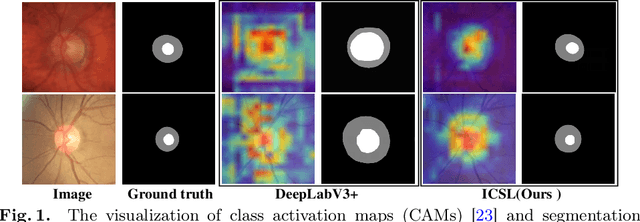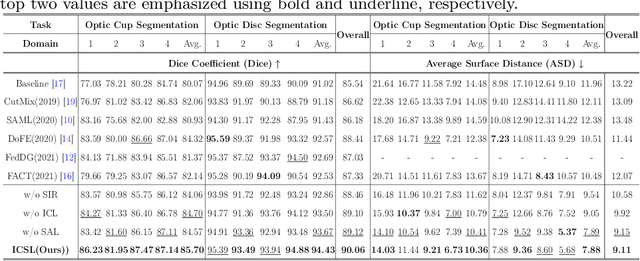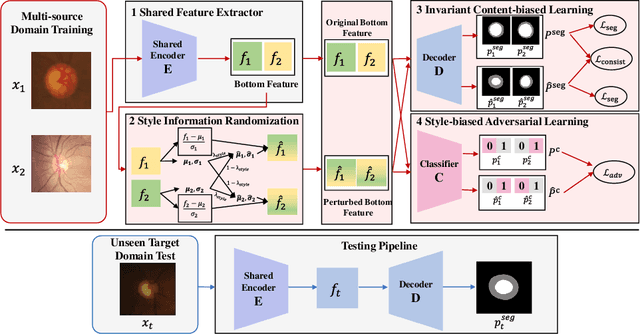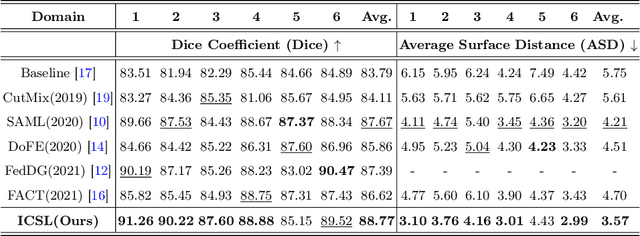Invariant Content Synergistic Learning for Domain Generalization of Medical Image Segmentation
Paper and Code
May 05, 2022



While achieving remarkable success for medical image segmentation, deep convolution neural networks (DCNNs) often fail to maintain their robustness when confronting test data with the novel distribution. To address such a drawback, the inductive bias of DCNNs is recently well-recognized. Specifically, DCNNs exhibit an inductive bias towards image style (e.g., superficial texture) rather than invariant content (e.g., object shapes). In this paper, we propose a method, named Invariant Content Synergistic Learning (ICSL), to improve the generalization ability of DCNNs on unseen datasets by controlling the inductive bias. First, ICSL mixes the style of training instances to perturb the training distribution. That is to say, more diverse domains or styles would be made available for training DCNNs. Based on the perturbed distribution, we carefully design a dual-branches invariant content synergistic learning strategy to prevent style-biased predictions and focus more on the invariant content. Extensive experimental results on two typical medical image segmentation tasks show that our approach performs better than state-of-the-art domain generalization methods.
 Add to Chrome
Add to Chrome Add to Firefox
Add to Firefox Add to Edge
Add to Edge